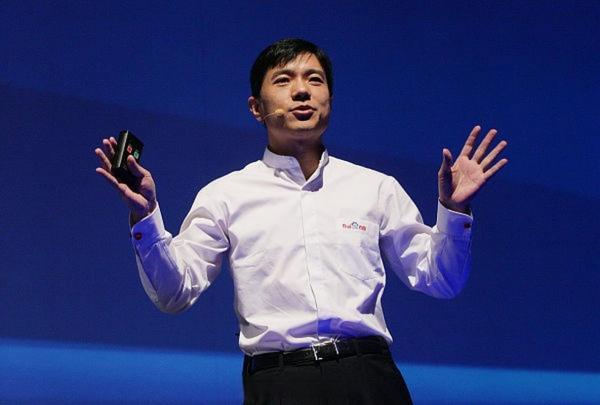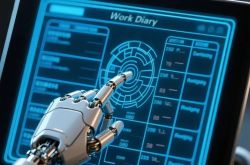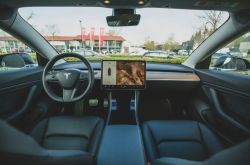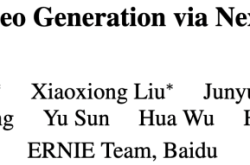Li Yanhong's Role in Jiyue's Downfall: A Deeper Look
![]() 12/31 2024
12/31 2024
![]() 606
606

The abrupt downfall of Jiyue Automobile has reverberated through the entire automotive industry, affecting not only the company itself but also its investors, Baidu and Geely.
Ironically, one of the reasons often cited for Jiyue's troubles is the investment by Baidu and Geely.
When Baidu announced its support for Jiyue's "intelligent driving" and "map navigation" initiatives, public attention shifted to Baidu and even its CEO, Li Yanhong.
The underlying issue here is that while Baidu invested in Jiyue, it did not interfere in its management. Typically, excessive investor interference is seen as a strategic flaw; however, the criticism leveled at Baidu and Li Yanhong for not interfering is perplexing.
Simply attributing Jiyue's collapse to Baidu or even Li Yanhong, solely because of the investment, is overly simplistic and arbitrary.
In reality, Jiyue's downfall is the result of strategic missteps and the intensifying competition within the automotive industry, rather than solely due to Baidu's investment.
In essence, neither Baidu nor Li Yanhong can rescue Jiyue; what Jiyue truly needs is self-rescue.
To fully understand this, it's crucial to place Jiyue Automobile within the broader context of the automotive industry and clarify its relationships with Baidu and Geely.
Otherwise, pinning Jiyue's collapse solely on Baidu not only obscures the true causes but also unfairly implicates Li Yanhong.
1
Discussing Baidu's investment in Jiyue necessitates revisiting the era of rapid growth and fervent capital influx into the automotive sector.
During that time, not just Baidu but numerous players were actively planning and diving into automotive manufacturing.
Viewed against this backdrop, Baidu's investment in Jiyue was not problematic.
Competition in the automotive industry is inevitably shifting from new energy drivetrain technologies to intelligent driving, creating a clearer roadmap for the future.
Examining Tesla's investment in FSD and the intelligent driving strategies of traditional automakers like Mercedes-Benz and Volkswagen underscores that the automotive sector is entering a new competitive phase.
While the layout of new energy vehicles is crucial for automakers to establish a foothold in the industry, their strategies in intelligent driving directly impact their ability to thrive in this fiercely competitive environment.
When discussing intelligent driving, Baidu's pioneering efforts in this field cannot be overlooked.
It's no exaggeration to say that Baidu was among the first domestic players to apply AI technology to the automotive sector, evident from its robotaxi service, Luobo Kuaipao, and the continuous integration of AI technology in automotive manufacturing.
From this perspective, Baidu's investment in Jiyue was not merely a play in the booming automotive market but a forward-thinking move recognizing the shift from drivetrain technologies to intelligent driving.
Therefore, Baidu's investment in Jiyue was not a misstep but a strategic move that anticipated the industry's transition towards intelligent driving.
It appears that Baidu's investment in Jiyue reflects Li Yanhong's early insights into the automotive industry and Baidu's proactive stance towards industry trends, rather than a blunder as perceived by outsiders.
2
One critical reason behind Jiyue's downfall is its internet-centric approach to automotive manufacturing, failing to find a sustainable model within this sector.
Recognizing this helps clarify that Jiyue's collapse is more a reflection of its inappropriate model and strategy rather than a failure of Li Yanhong's decisions.
When automotive manufacturing became trendy, especially with the attention of capital institutions and internet giants, it was hailed as the "next internet," with some advocating "building cars with an internet model."
From a capital perspective, the automotive sector isn't vastly different from the internet sector.
However, from an industrial standpoint, especially as automotive manufacturing delves deeper, it becomes evident that it's not a mere replica of the internet but a distinct entity with unique characteristics.
For players in the automotive sector, merely replicating internet models and methods may yield initial success but will ultimately lead to a dead-end as competition intensifies.
Jiyue's collapse epitomizes this phenomenon.
Whether it's the reported losses per live stream or the excessive focus on marketing, it's clear that Jiyue approached automotive manufacturing with an internet mindset without finding a suitable development path.
While this approach was effective when capital drove competition, as the sector transitioned to self-sustainability, Jiyue's model encountered increasing difficulties.
Thus, Jiyue's downfall is attributed to its internet-centric approach, not solely to Baidu's investment.
3
Signs increasingly indicate that the restructuring within the automotive industry is becoming deeper and more comprehensive.
While previous restructurings were primarily capital-driven, current ones are more focused on market share and technology diversification.
In short, the restructuring in the automotive industry is evolving into a deeper, more holistic process.
At this stage, players are tested not just on their products but also on market share, technology diversification, and self-sustainability.
For any player in the automotive sector, without a significant market presence, technology diversification, and self-sustainability—especially in AI-driven autonomous driving—surviving this restructuring will be challenging.
Despite the praise for Jiyue's products, the lack of a substantial market size hindered its self-sustainability.
This can be seen in the earlier collapses of WM Motor and HiPhi, which faced similar challenges.
Ultimately, relying solely on capital infusion without a self-sustainable model is insufficient, regardless of product quality or investor background.
Some might argue against this with Xiaomi's success in automotive manufacturing, despite its late entry. However, considering Xiaomi's $10 billion investment and the support from its ecosystem, a different perspective emerges.
In a way, Xiaomi's automotive model is self-funded, with other businesses supporting and nurturing the automotive division, leading to its success.
Essentially, this success stems from Xiaomi's extensive ecosystem and comprehensive product and user base.
Jiyue lacks Xiaomi's self-funding and nurturing foundation.
As competition intensifies, Li Yanhong, as a strategic investor, cannot provide a comprehensive, multi-faceted support system for Jiyue.
From this perspective, Baidu can only support certain aspects of Jiyue but cannot fully empower it across the board. Jiyue's lack of strong market share and technology diversification is the root cause of its predicament.
When Jiyue needs the comprehensive support that Lei Jun provides, it's beyond Li Yanhong's control.
Conclusion
Simply blaming Jiyue's collapse on Baidu or even Li Yanhong alone is unfair.
In essence, Jiyue was just one of Baidu's investment projects, not its core product.
In fact, numerous players have invested in the automotive sector, not just Baidu.
Li Yanhong cannot save Jiyue more because the restructuring in the automotive industry has deepened, marking the transition to self-sustainability and a new phase of competition.
Li Yanhong cannot save Jiyue. What Jiyue truly needs is self-rescue.






